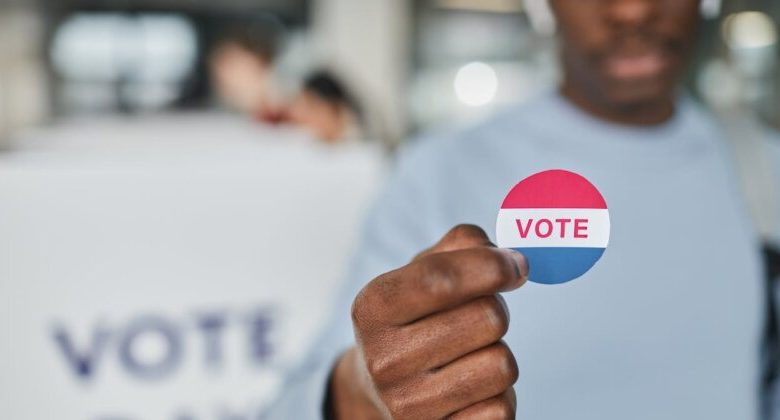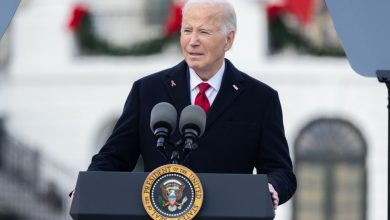Social Media in Political Campaign Marketing

Social media’s role in political landscapes has evolved significantly, becoming a crucial arena for campaigning. In the United States, nearly 27% of social media users believe these platforms are vital for finding others who share their views on significant issues. However, this sentiment is a slight decline from previous years, which may reflect growing concerns about the echo chamber effect, where users primarily encounter opinions that mirror their own.
As political campaigns become more dependent on digital platforms for engagement, it’s crucial for any campaign to grasp these trends to achieve success. This change underscores the urgent need for campaigns to evolve and introduce new practices consistently to match digital developments and voter expectations.
This leads us to our initial discussion point: the significant impact of social media advertising in political campaigns.

The Power of Social Media Advertising
Political campaigns have turned to platforms like Instagram to broadcast their messages and engage with potential voters. For instance, Instagram’s visual and interactive format allows for creative and compelling storytelling, which is crucial in capturing voter attention. However, the platform’s saturated environment makes it challenging for messages to stand out. To truly stand out, campaigns must also invest in high-quality content that is both informative and emotionally appealing.
In addition, campaigns can gain significantly by teaming up with specialized Instagram growth services to enhance follower numbers and engagement rates organically. By focusing on strategic content planning and active community interaction, a top-rated Instagram growth service ensures campaigns effectively connect with a broader audience.
Leveraging their expertise in organic growth allows campaigns to effectively manage the nuances of Instagram’s evolving algorithms and user behavior patterns, guaranteeing enhanced visibility for their messages. These partnerships facilitate real, engaged follower growth, vital for expanding the reach and impact on the platform.
Targeting and Personalization Techniques
Political campaigners leverage sophisticated data analytics to target specific voter demographics on social media. By analyzing user behavior and preferences, campaigns can tailor their messages to resonate with different groups, enhancing ad effectiveness.
These tailored messages are often tested in smaller focus groups to refine their appeal before wide-scale deployment. This strategy ensures that the right messages reach the right audiences at the right time, maximizing impact and voter engagement.
Advanced targeting also allows campaigns to adjust their strategies in real time, responding to shifts in public opinion or emerging trends. The agility provided by real-time data analysis can significantly sharpen a campaign’s competitive edge.
Engagement and Interaction
Engagement with voters on social media isn’t just about broadcasting messages but also about interaction. Effective campaigns actively use live streams, respond promptly to voter inquiries, and create interactive posts that stimulate user involvement. Integrating content generated by users, such as testimonials from voters or Q&A sessions, boosts these engagement levels even further.
These methods ensure that voters feel acknowledged and important, which strengthens their bond with the campaign. Establishing a communication relationship that operates bidirectionally not only elevates voter morale but also provides campaigns with crucial data on voter issues and preferences. This ongoing exchange forms a cycle of feedback that campaigns use to sharpen and adjust their strategies.
Viral Dynamics in Campaign Messaging
To broaden their message’s reach, campaigns work to produce content designed to go viral. This process involves formulating memorable hashtags, utilizing popular memes, and collaborating with influencers to spread the message. Timing these viral initiatives to align with significant news events or cultural highlights can significantly boost their impact. Viral content does more than just extend a campaign’s reach—it also helps cultivate an organic base of supporters through a rise in shares and mentions.
Carefully orchestrated viral campaigns markedly increase the visibility of political messages and are critical in molding public opinion. These activities demand a deep grasp of prevailing trends and sentiment analysis to anticipate which content will most likely engage the audience.
Crisis Management and Image Control
Social media is a potent tool but comes with its risks, including the rapid spread of misinformation and negative publicity. Effective campaigns need robust strategies for crisis management and image control. This involves constant monitoring of social media channels and quick responses to any adverse incidents or misinformation that could tarnish a candidate’s image.
Having a dedicated team to handle such crises can prevent escalations and maintain public relations stability. Proactive management and timely interventions can mitigate potential damage and maintain a campaign’s integrity and credibility. Regular training in crisis communication empowers teams to act effectively under pressure.
Ethical Considerations and Regulations
The deployment of social media in political campaigns brings up important ethical issues and legal challenges. Campaigns must skillfully maneuver through a complex set of rules concerning data use, privacy, and openness. Committing to ethical advertising methods and securing data protection is essential for preserving the trust of voters.
Compliance with these laws is essential not only for adhering to legal standards but also for retaining the trust of the public. Anticipating changes in regulations and promoting openness can enhance accountability and reliability among voters. Campaigns that place a high value on ethical behavior and openness often gain a strategic edge in building trust with voters.

Conclusion
As we continue to engage with the digital era, social media’s impact on political campaigns intensifies. By comprehending and capitalizing on the capabilities of social media platforms, campaigns can unlock levels of engagement and influence never seen before.
Additionally, being flexible in response to ongoing shifts in digital communication lays the groundwork for future triumphs in political campaigns. Looking toward upcoming elections, the ongoing development of social media tactics will certainly be critical in defining political dialogue and outcomes.




